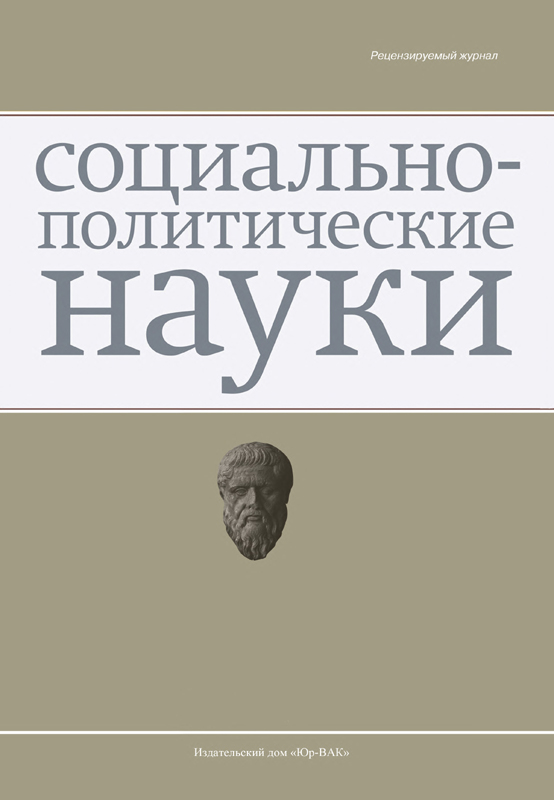Alimony Fund as a Way to Protect a Child’s Right to Receive Maintenance
- Authors: Letova N.V.1
-
Affiliations:
- Institute of State and Law of the Russian Academy of Sciences
- Issue: Vol 12, No 3 (2022)
- Pages: 75-81
- Section: Articles
- URL: https://journals.eco-vector.com/2223-0092/article/view/535785
- DOI: https://doi.org/10.33693/2223-0092-2022-12-3-75-81
- ID: 535785
Cite item
Abstract
The purpose of the study. In this article, the author examines the issues of theory and practice related to the need to create an alimony fund in our country as one of the ways to ensure the rights of a child to receive maintenance in the form of alimony. The need to create such a fund is due to the existing problem of timely payment of alimony to children, which is a significant violation of their property rights. The participation of the State in solving such a problem will create additional guarantees for children, ensure the realization of their right to maintenance and satisfaction of basic needs. The author comes to the conclusion that the lack of proper regulatory regulation of alimony relations in the context of the development of alimony funds indicates systemic problems in law, and as a result, in practice, in solving questions about the departmental affiliation of such funds, the essence of the funds that form its content and the possibility of applying civil law institutions to such relations.
Full Text
About the authors
Natalia V. Letova
Institute of State and Law of the Russian Academy of Sciences
Email: letovanv@mail.ru
Dr. Sci. (Law); deputy Director for research, chief researcher at the Sector of Civil Law, Civil and Arbitration Process Moscow, Russian Federation
References
- Antokolskaya M.V. Family law: Textbook. Moscow: Lawyer. 1996. P. 279.
- Bukshina S.V. The right of a child to receive maintenance from his parents: Issues of implementation. Family and Housing Law. 2012. No. 3. P. 12. (In Rus.)
- Gongalo B.M. Alimony obligation. Family and Housing Law. 2016. No. 5. P. 16. (In Rus.)
- Grishaev S.P. Alimony obligations. SPS Consultant Plus. 2011. (In Rus.)
- Dzyubrovskaya L.V. Alimony payment agreement - independent family law institute. Family and Housing Law. 2012. No. 6. P. 13. (In Rus.)
- Ioffe O.S. Soviet civil law: A course of lectures. 1965. Vol. 3, L. P. 262. (In Rus.)
- Kapitova O.V. The legal nature of the alimony mechanism in family law of the Russian Federation. Moscow, 2010. Pp. 34-37.
- Commentary on the family code of the Russian Federation. O.N. Nizamievа (ed.). Moscow: Prospect, 2010. P. 323.
- Ksenofontova D.S. Notarization of an agreement on the payment of alimony as a legal guarantee of the exercise and protection of the rights and interests of the subjects of alimony legal relationship. Notary. 2014. No. 4. Pp. 19-22. (In Rus.)
- Levushkin A.N. On the issue of alimony and the consequences of non-fulfillment of alimony obligations. Executive Law. 2011. No. 2. Pp. 17-21. (In Rus.)
- Letova N.V. The legal nature of alimony agreements: Problems of substantive and procedural law. Socio-political Sciences. 2021. No. 3. Vol. 11. Pp. 133-140. (In Rus.)
- Pergament A.I. Alimony obligations under Soviet law. Moscow, 1951. P. 6.
- Pchelintseva L.M. Family law of Russia: Textbook for universities. Moscow: Norma, 2007. P. 391.
- Rzhanitsyna L.S. Alimony in Russia: Analysis of problems and strategy in the interests of children. Moscow, 2012. Pp. 23-26.
- Saveliev D.B. Agreements in the family sphere. Moscow, 2010. P. 71.
- Serebryakova A.A. Problems of legal regulation and practice of application of the alimony payment agreement. Notary. 2015. No. 6. Pp. 21-24. (In Rus.)
- Soloviev V.Yu., Orlova A.V. Actual problems of protecting the rights and legitimate interests of minors in enforcement proceedings. Modern Law. 2021. No. 9. Pp. 69-75. (In Rus.)
- Trestsova E.V. Material and legal guarantees of ensuring the property interests of minors in family law.
- Usacheva E.A. Problems of determining the subject and subject composition of an agreement on the payment of alimony. Actual Problems of Russian Law. 2014. No. 8 (45). P. 1656. (In Rus.)
Supplementary files









